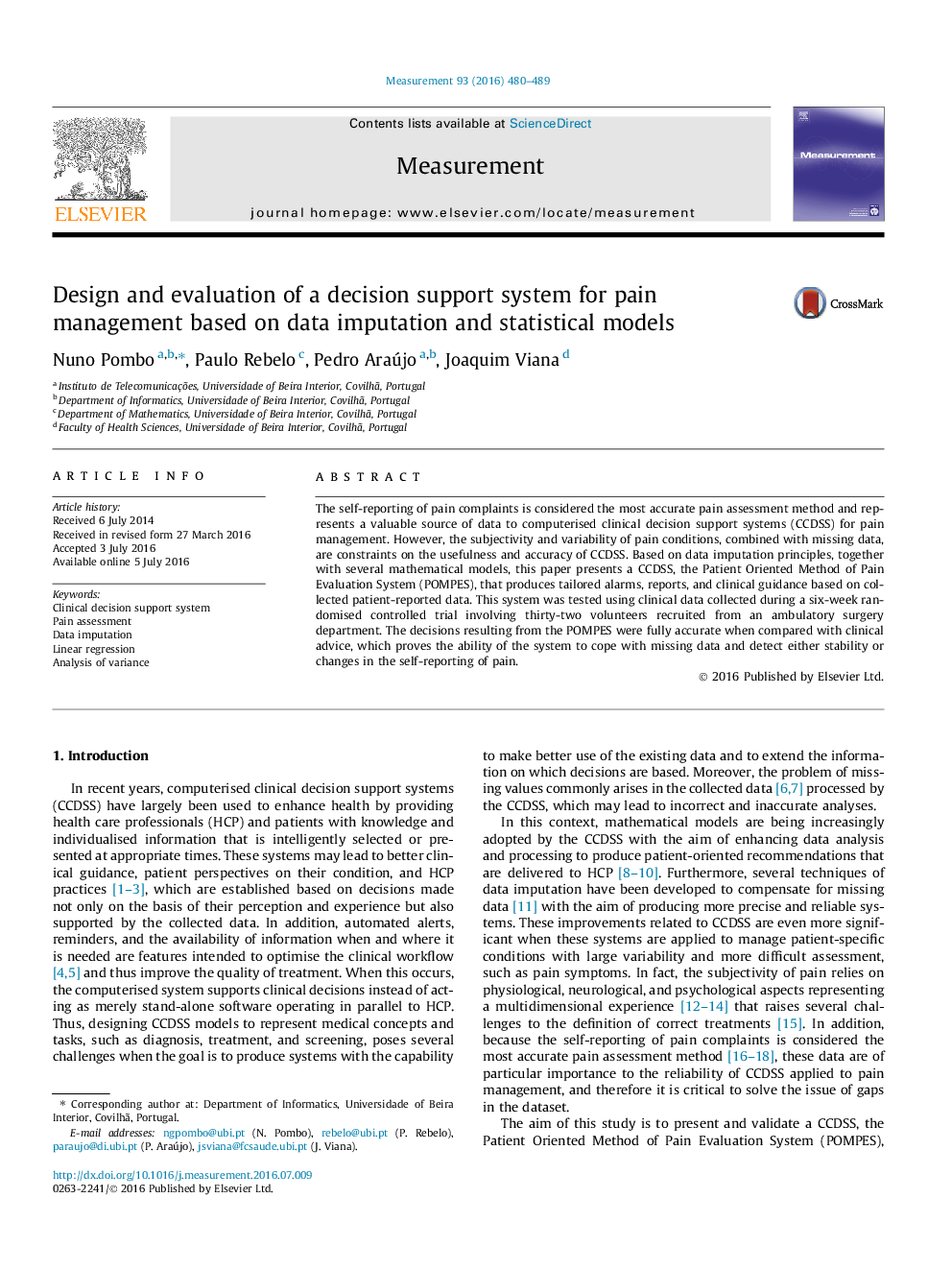| Article ID | Journal | Published Year | Pages | File Type |
|---|---|---|---|---|
| 7122870 | Measurement | 2016 | 10 Pages |
Abstract
The self-reporting of pain complaints is considered the most accurate pain assessment method and represents a valuable source of data to computerised clinical decision support systems (CCDSS) for pain management. However, the subjectivity and variability of pain conditions, combined with missing data, are constraints on the usefulness and accuracy of CCDSS. Based on data imputation principles, together with several mathematical models, this paper presents a CCDSS, the Patient Oriented Method of Pain Evaluation System (POMPES), that produces tailored alarms, reports, and clinical guidance based on collected patient-reported data. This system was tested using clinical data collected during a six-week randomised controlled trial involving thirty-two volunteers recruited from an ambulatory surgery department. The decisions resulting from the POMPES were fully accurate when compared with clinical advice, which proves the ability of the system to cope with missing data and detect either stability or changes in the self-reporting of pain.
Keywords
Related Topics
Physical Sciences and Engineering
Engineering
Control and Systems Engineering
Authors
Nuno Pombo, Paulo Rebelo, Pedro Araújo, Joaquim Viana,
